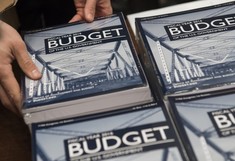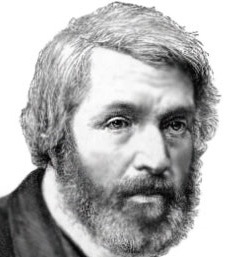Though buffeted in court, at the Federal District level at least, Barack Obama will press on, we know. His immigration reform -- outmaneuvering by executive fiat the die-hardism of GOP majorities in Congress -- will doubtless get delayed but not destroyed.
 Meanwhile Obama's bold budget, which he so fondly nicknames "middle-class economics", will likely escape major media attention amid all this immigration kerfuffle, but still be resolutely pushed forward by the administration. What setbacks it encounters will come in Capitol Hill committee rooms, not in courtrooms.
Meanwhile Obama's bold budget, which he so fondly nicknames "middle-class economics", will likely escape major media attention amid all this immigration kerfuffle, but still be resolutely pushed forward by the administration. What setbacks it encounters will come in Capitol Hill committee rooms, not in courtrooms.
So there will soon be many lively battles and skirmishes to report. But covering the economy is never journalistically easy. Casing it in terms of political infighting and horse-trading can make it seem easier (to reporters at least) -- but it doesn't make the overall story any more comprehensible.
 Journalists have probably always scratched their heads over how they can possibly engage the general public in questions of economics -- which we have one of my favorite Scottish sages Thomas Carlyle (left), born just 12 miles from my family home, to thank for labeling indelibly as "the dismal science".
Journalists have probably always scratched their heads over how they can possibly engage the general public in questions of economics -- which we have one of my favorite Scottish sages Thomas Carlyle (left), born just 12 miles from my family home, to thank for labeling indelibly as "the dismal science".
When still based in the UK, I was made aware of journalistic anxieties -- bordering on private self-laceration -- over how inadequately we present economic matters to our audience. A dear friend, one of the country's preeminent TV news anchors, confessed to me the guilt feelings that raged beneath his calm performance every year while covering the national budget announcement. That event is traditionally a British media circus -- with TV and the tabloids fanatically focusing on whatever few pennies' change there might be in taxes levied on whisky or gin. My friend said: "I feel I should go back to school, the London School of Economics in fact, and learn how to explain the big picture so it's understandable."
Here in the U.S., I've recently been reporting on a segment of the public clearly dissatisfied with the economic explanations they get. PBS has just carried the result -- a TV feature about a group of laypeople (in more than one sense) whose impatience with experts and with us so-called popularizers has led them to launch their own initiative.
The congregation at a church in Brooklyn, the Bay Ridge United Methodists, are offering a new prize for economics. At $33,000 it's somewhat smaller than the $1 million Nobel Prize, but it's big in ambition. They want an economist, or group of economists, to explain in an understandable and non-ideological fashion, just why our nation's key economic indicators for now look so dismal compared with the 1960s and '70s -- during what appears to many to have been a halcyon age.
Here's my report, as aired on this week's Religion and Ethics Newsweekly program.
Read more of David Tereshchuk's media industry insights at his regular online column, The Media Beat at its new site. The Media Beat podcasts are always available on demand from Connecticut's NPR station WHDD, and at iTunes.